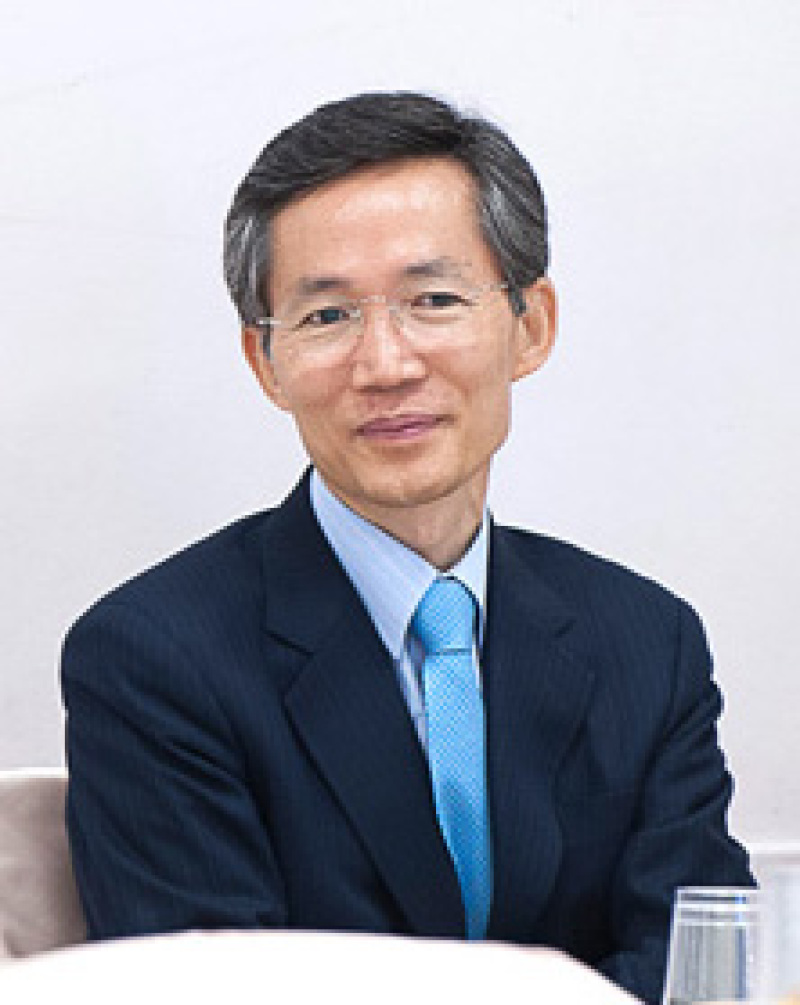
I am not a poet. I have a wish to write poetry but it is not easy to write poetry. Although I am not a poet, I am interested in poetry. It is because I envy poets' hearts and eyes. Poets see, more precisely, what we cannot see, and describes what we do not see well. They take interest in what we easily overlook and reveal its beauty. It helps us to realize new beauty by looking at familiar things with new eyes. Poets especially make small things noble and help small and alienated ones shine. They make us love trivial things, even things we hate. I would like to introduce "There Are Also Wounds on Blades of Grass," a poem written by the poet Cheong, Ho-Seung.
There are also wounds on blades of grass,
There are also wounds on petals
As I walk along the field path where you and I once walked together
When I sit by the field path and gaze at the glow of sunset
Wounded blades of grass wave their hands
Petals with many wounds
Are the most fragrant.
The poet looked at the blades of grass and petals one day. The blades and petals are small. They are by our side. They always stand quietly. You have to kneel to look at the blades closely. The poet stopped on his way, and knelt down and looked at the blades. He looked at the petal among the blades. And he saw the wounds hidden in them. You need to look closely to see cuts in the blades and petals. You have to look for a while. As he looked at their wounds, the poet saw a wound inside him. He saw wounds in people. He realized that there is no one without a wound.
He saw the wounded blades of grass shaking hands. As he saw the blades of grass shake in the wind, he saw the blades shaking their hands. Shaking means being shaken. Shaking is not always bad. Mark Nepo said, "Deep learning involves deep shaking." Deep understanding comes from a deep brokenness. How can you attain deep understanding without shaking and breaking? How can you experience deep transformation without it? To see with depth, you must be shaken deeply. You must experience deep pain. We see what we have experienced. The reason that the poet Cheong, Ho-Seung saw the wounds from the blades and petals is because of the wound in his heart.
Flowers are beautiful. It is the petal that makes the flower more beautiful. The petals forming the flower and the petals wrapping the flower make the flower shine. The poet saw the wound that was hidden in the petals that made the flower shine. He did not stop there. He smelled the fragrance produced by the wounded petals. How did the wounded petals create the fragrance? Because the petals forgave those who hurt them. Wounds emit a fragrance through forgiveness. Wounds without forgiveness are poisonous. However, the wounds that have been sanctified through forgiveness emits a fragrance. It emits fragrance like a fragrant tree -- the more it's chopped the more fragrance it emits. A fragrant tree gives the incense to the ax that chops it. The fragrant tree gives fragrance to those who hurt it.
Maybe we are like small blades of grass and petals. We all have wounds. I have never met anyone without a wound. But Jesus came to us one day and he was wounded. Jesus recognized our wounds through the wounds He received on the cross. The Blood that came from the wound of Jesus healed our wounds and made them fragrant. He healed us with the touch of His love. He healed us with the help of forgiveness. May you emit the fragrance of Christ through your wounds.

Reverend Joshua Choon-Min Kang is the senior pastor of New Life Vision Church, located in Los Angeles. This is one of the weekly letters he writes to his congregation. For the original, visit www.nlvc.org.



















